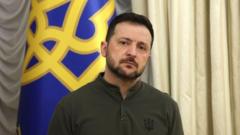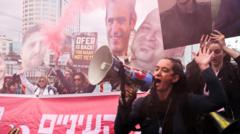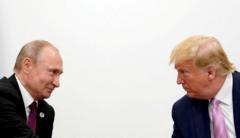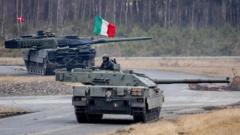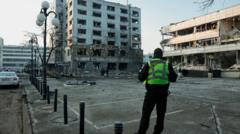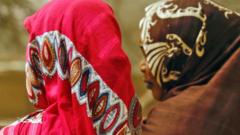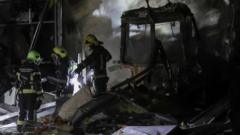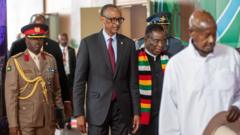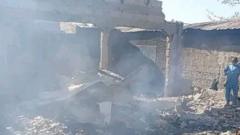As Russian and Ukrainian forces engage in severe combat in the Kursk region, the strategic importance of this territory becomes increasingly evident. Civilians have fled, and both armies have committed significant resources to the fight, shaping the future of negotiations anticipated by President Trump.
Intense Struggle for Control in Russia's Kursk Region Amid Ongoing Conflict

Intense Struggle for Control in Russia's Kursk Region Amid Ongoing Conflict
The ongoing battle for the Kursk region highlights the stakes and significance of territorial control in the Ukraine war, with both sides preparing for potential peace negotiations.
The fierce fighting in Russia's Kursk region has escalated as both Russian soldiers and Ukrainian forces vie for control of this strategic area. With peace talks anticipated under President Trump's promise, the struggle for supremacy is seen as critical by both sides. Civilians in the region have been disproportionately affected, leading thousands to flee, while an estimated 2,000 to 3,000 Russian civilians remain.
A Russian special forces commander known only by his call sign, Hades, reported that the current combat intensity at home is unprecedented, having witnessed brutal conditions on the battlefield during his service in the ongoing invasion. Both sides have reportedly sent some of their best military reserves to the region, underscoring its importance in the broader context of the war.
The town of Sudzha, once a quiet area, has become the epicenter of this fierce confrontation. Military analysts stress that controlling Kursk may serve as a significant bargaining chip in potential negotiations. The heavy losses reported on both sides reveal the high stakes involved, as each faction remains determined to secure this contested territory.
As the fighting continues, the humanitarian impact is alarming, with the local populace being caught in the crossfire and the struggle continuing to reshape the region's future. The dynamics of the conflict not only pose immediate threats to those involved but also set the stage for geopolitical discussions in a fragile peace process.
A Russian special forces commander known only by his call sign, Hades, reported that the current combat intensity at home is unprecedented, having witnessed brutal conditions on the battlefield during his service in the ongoing invasion. Both sides have reportedly sent some of their best military reserves to the region, underscoring its importance in the broader context of the war.
The town of Sudzha, once a quiet area, has become the epicenter of this fierce confrontation. Military analysts stress that controlling Kursk may serve as a significant bargaining chip in potential negotiations. The heavy losses reported on both sides reveal the high stakes involved, as each faction remains determined to secure this contested territory.
As the fighting continues, the humanitarian impact is alarming, with the local populace being caught in the crossfire and the struggle continuing to reshape the region's future. The dynamics of the conflict not only pose immediate threats to those involved but also set the stage for geopolitical discussions in a fragile peace process.

